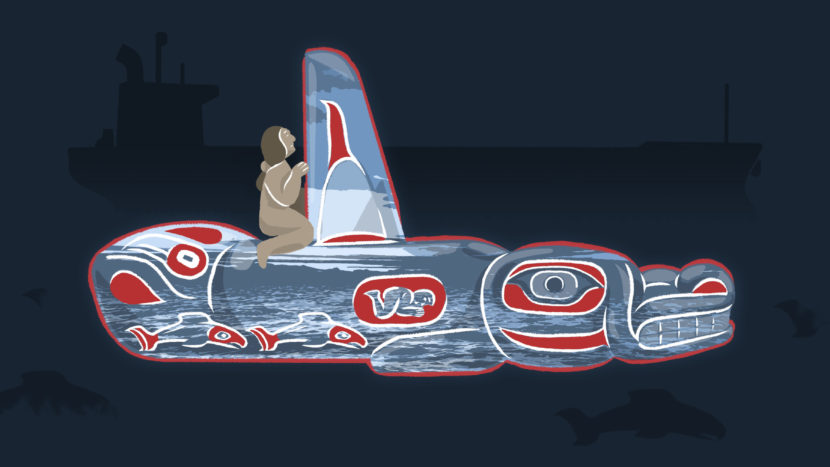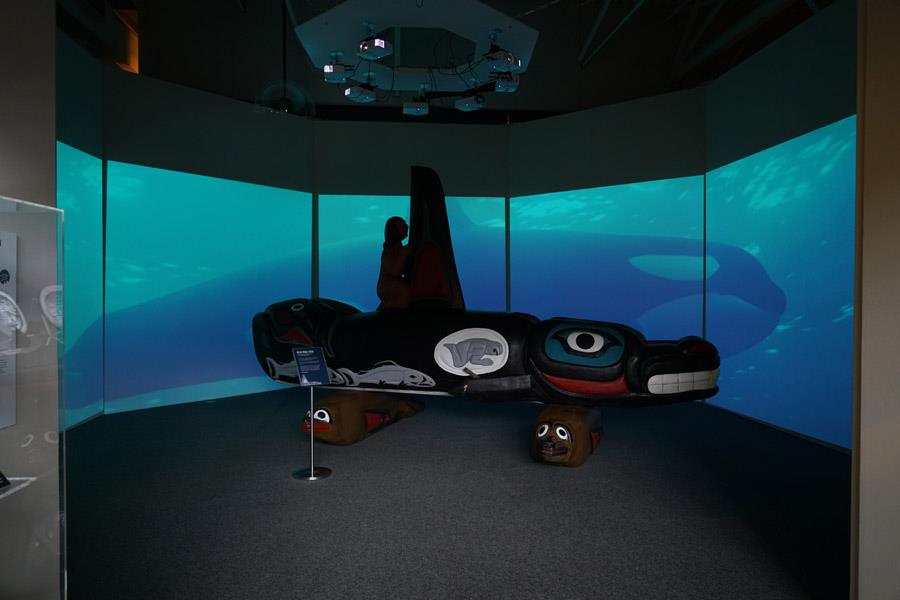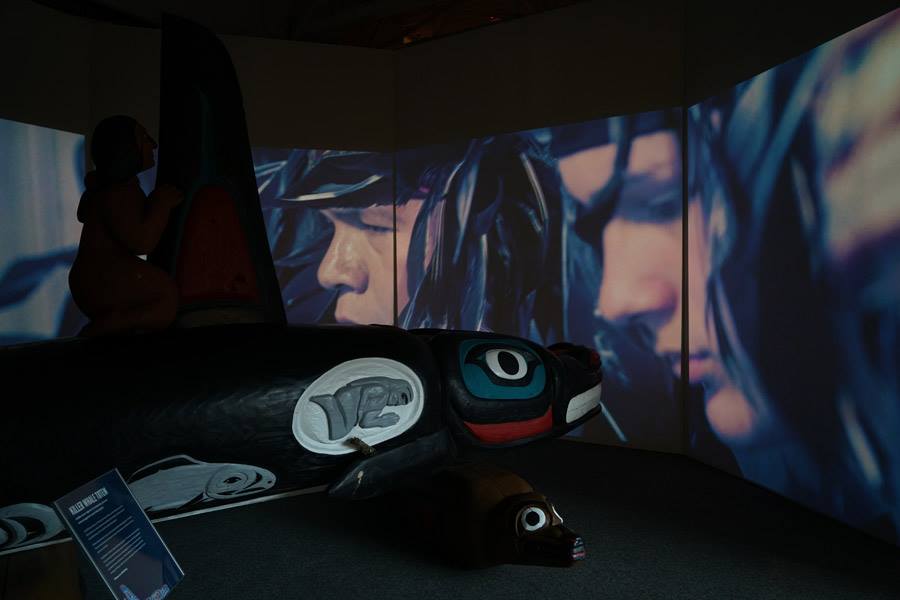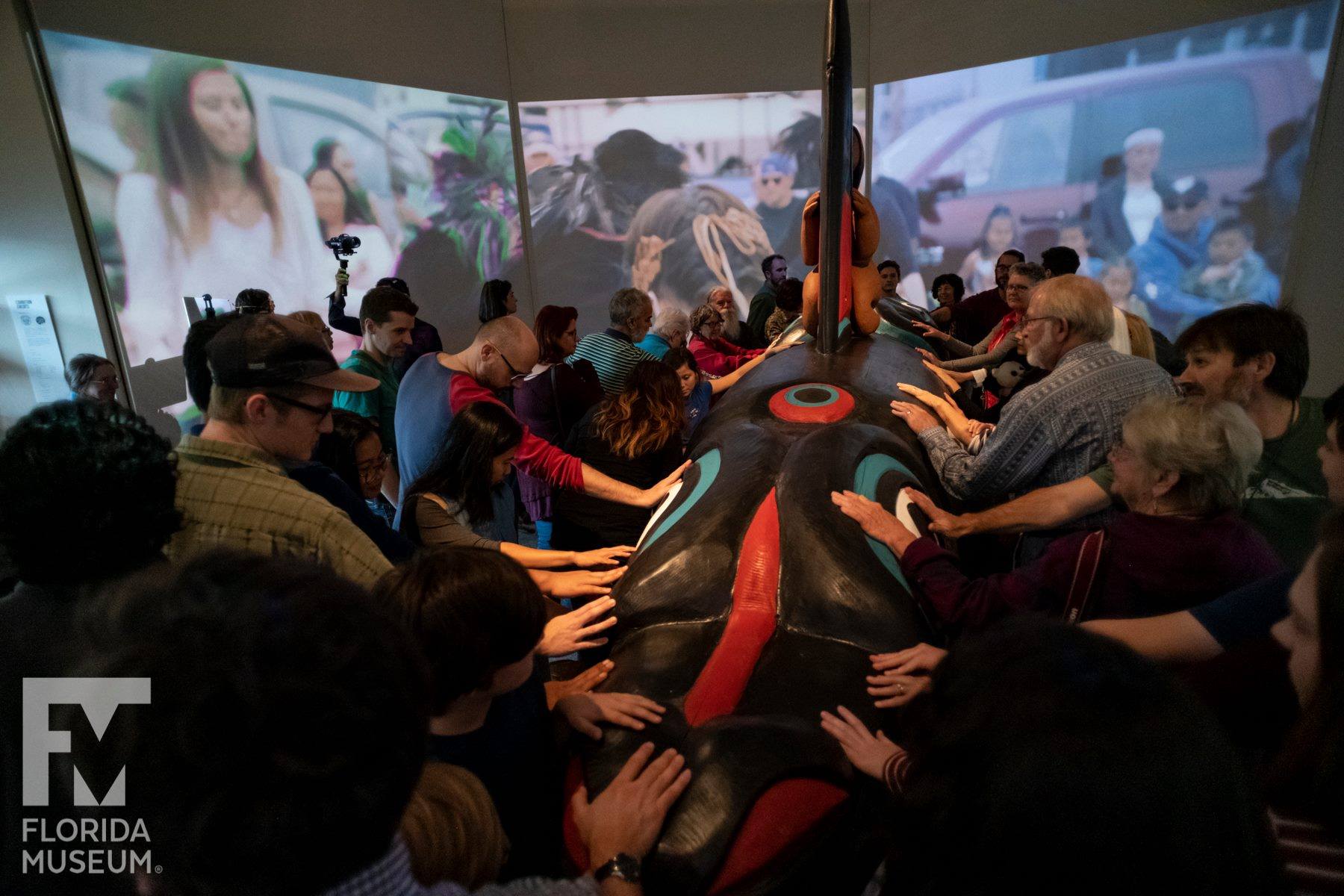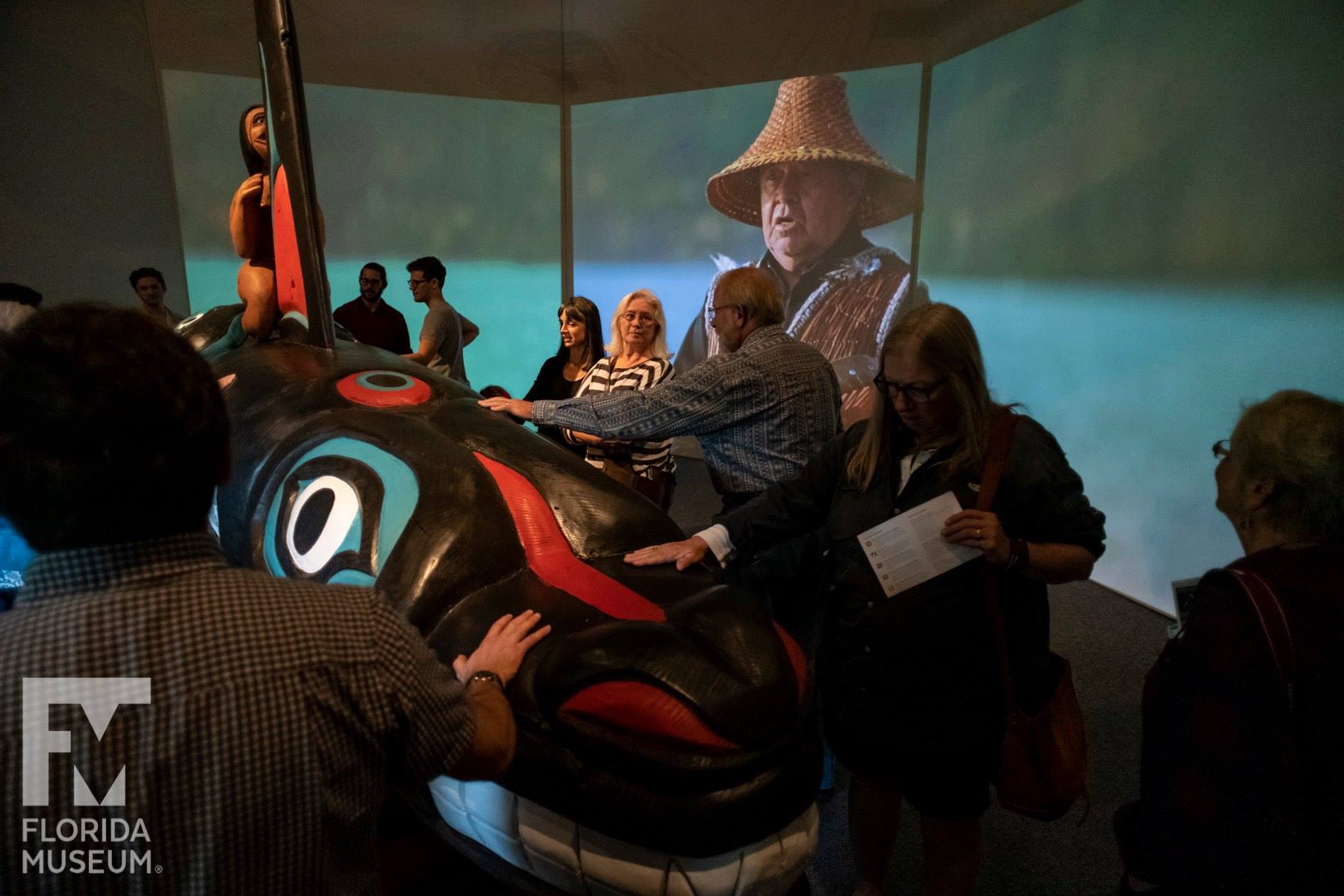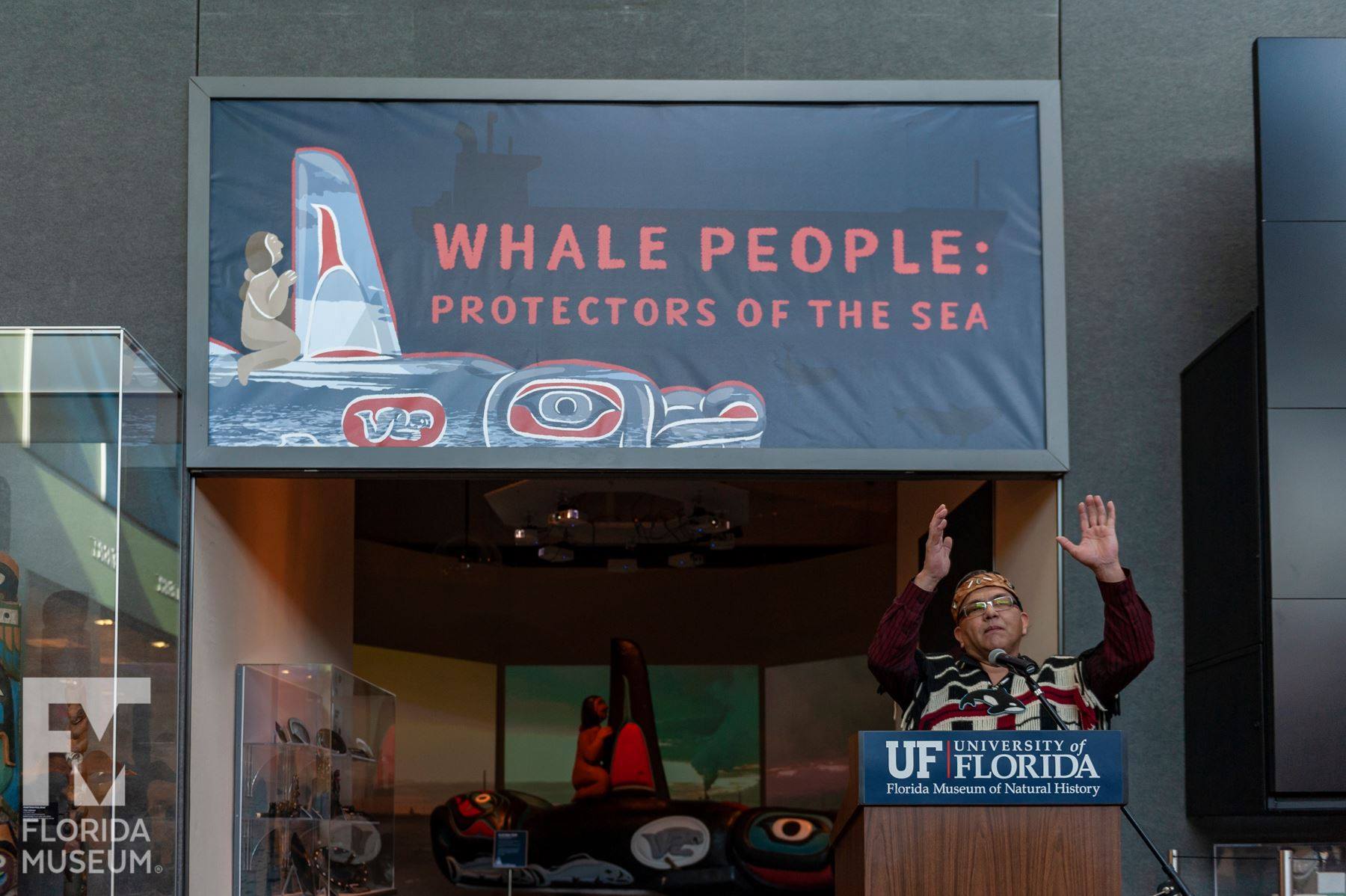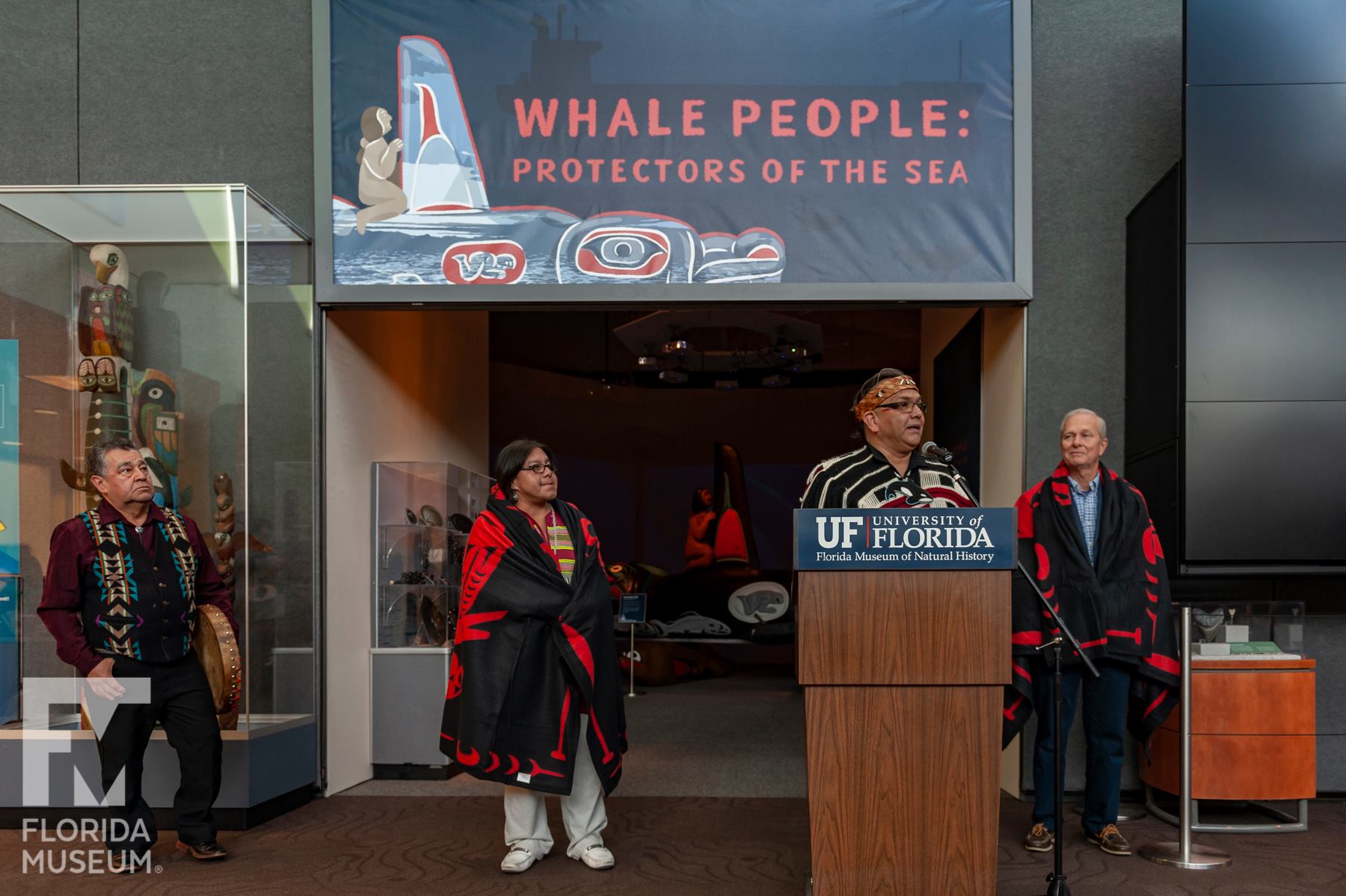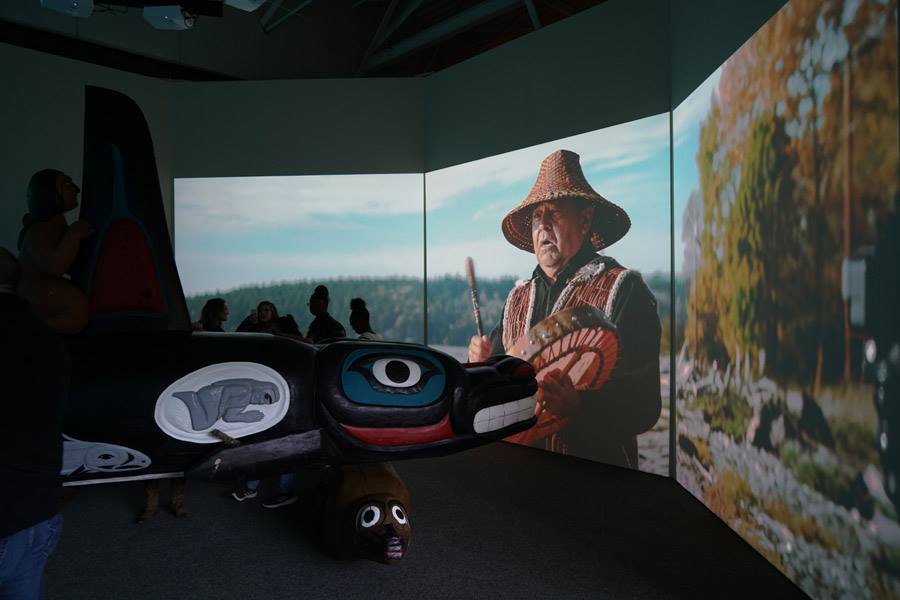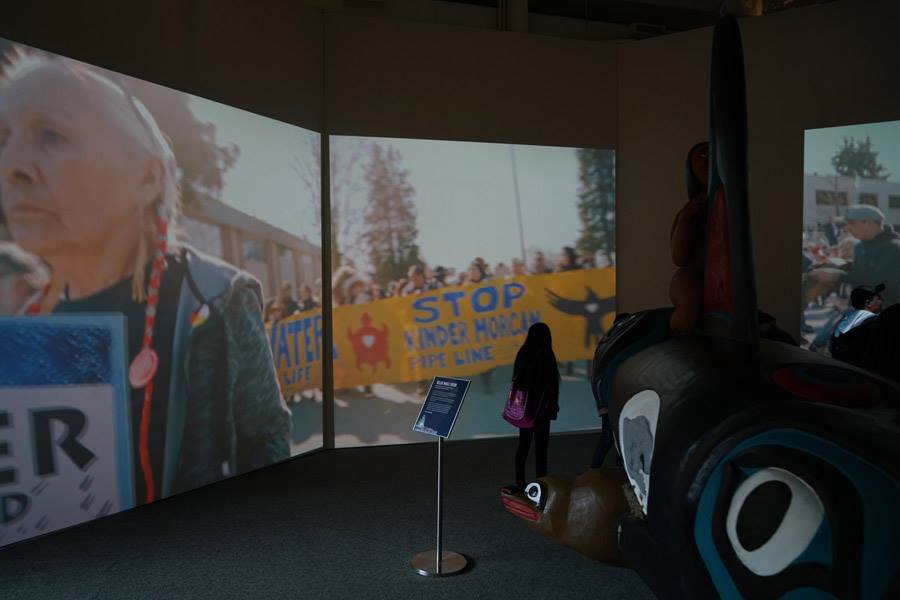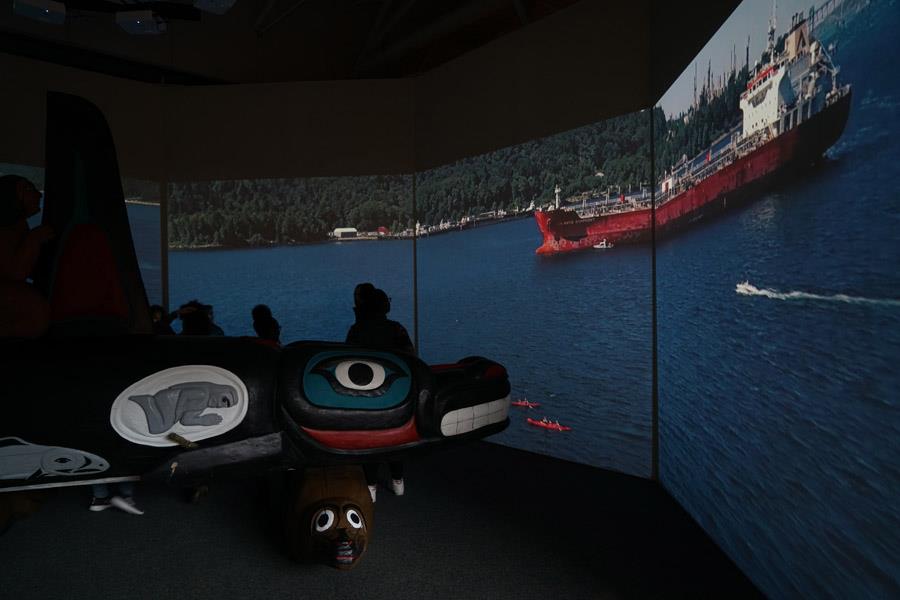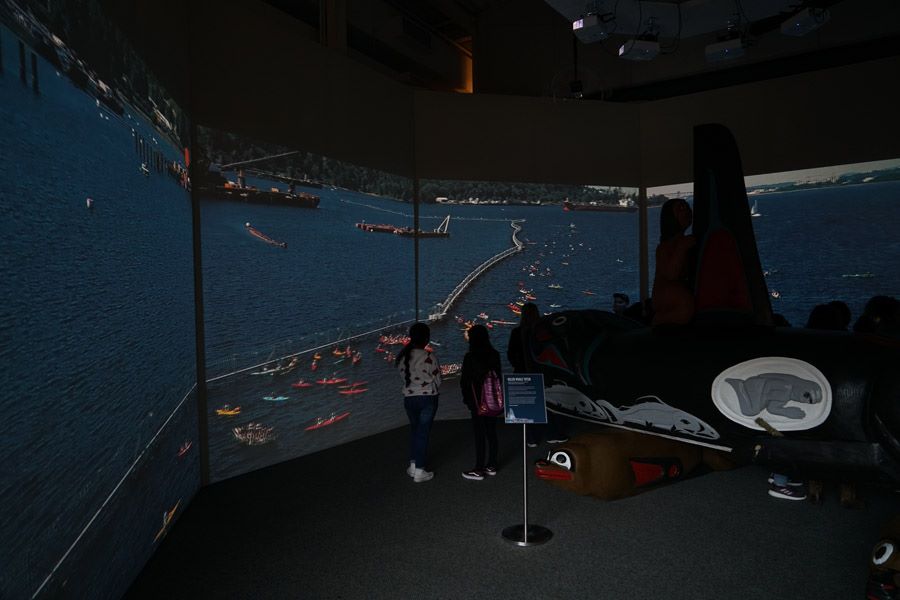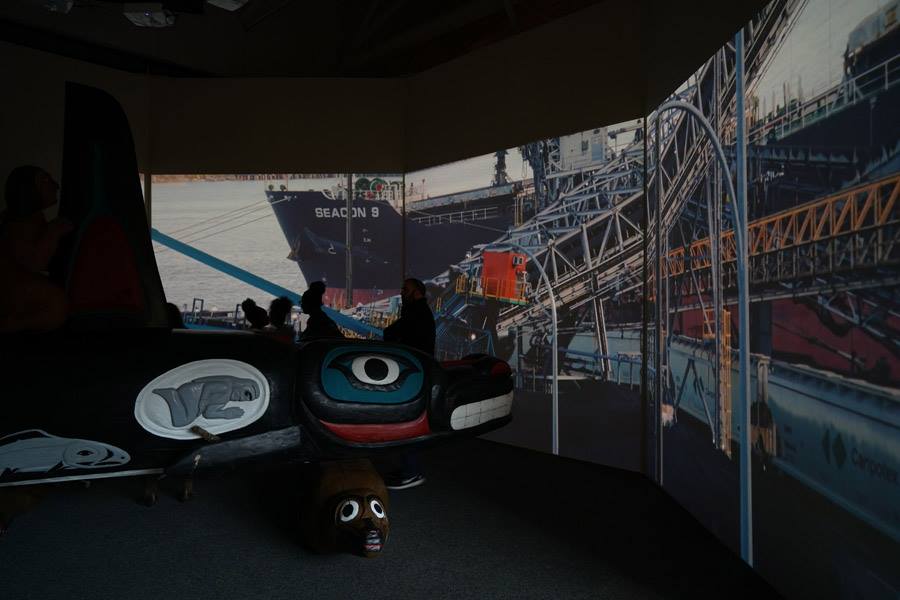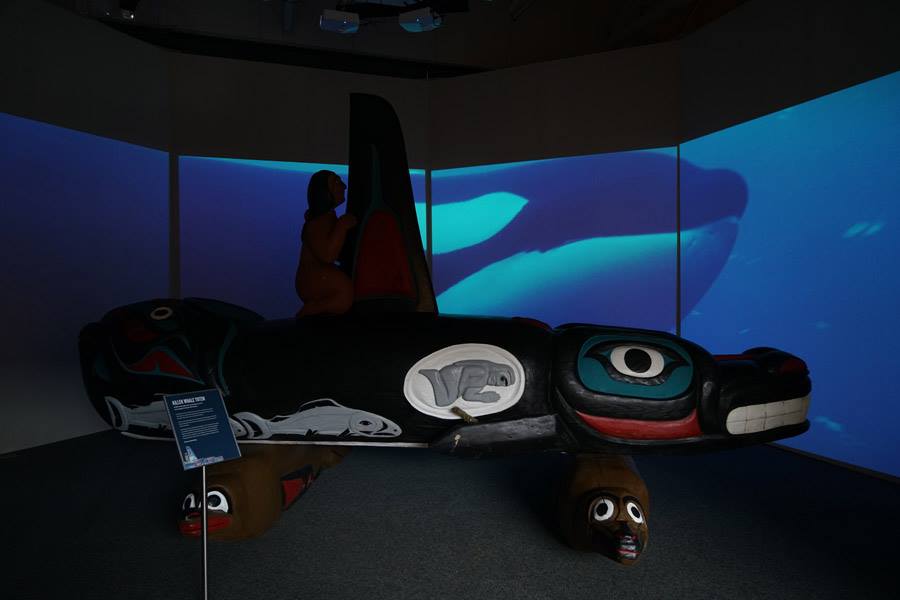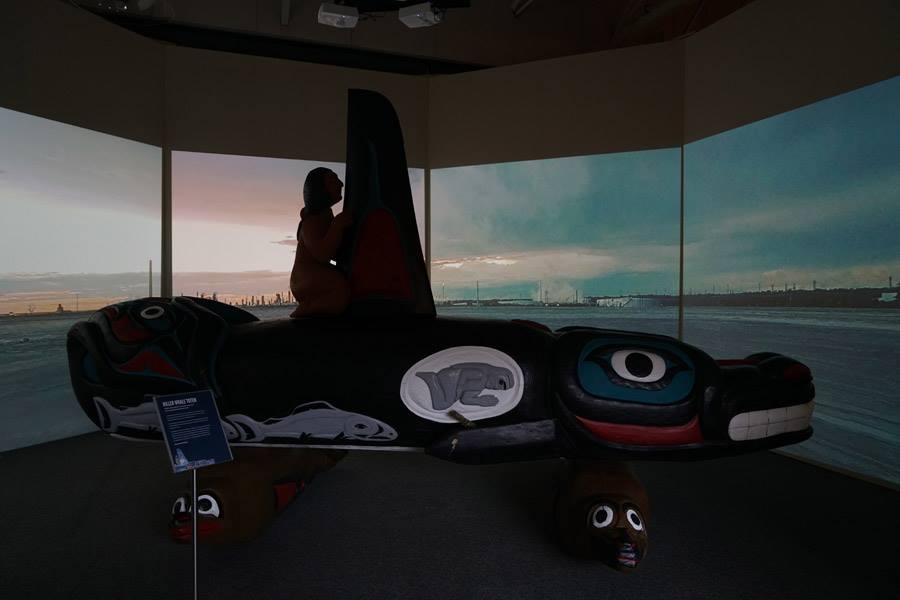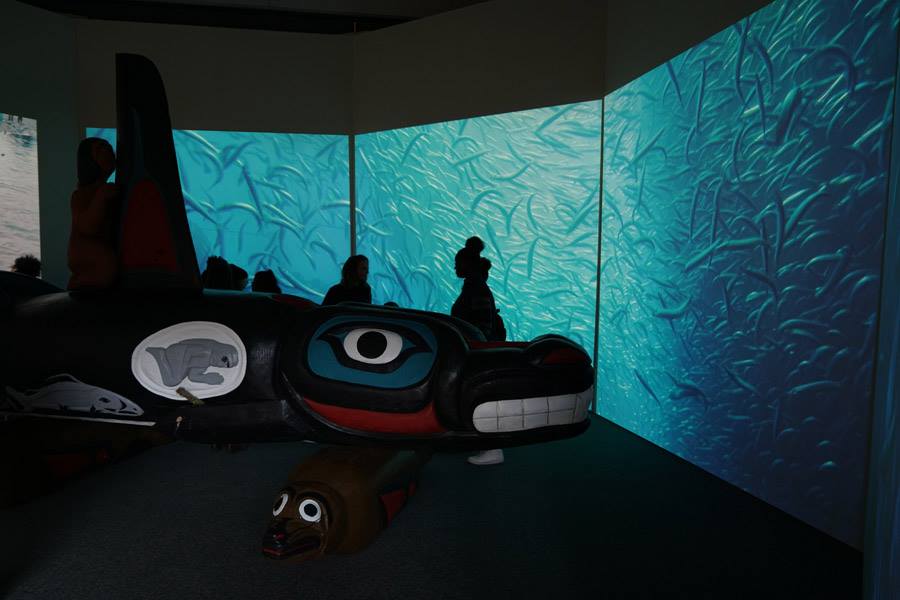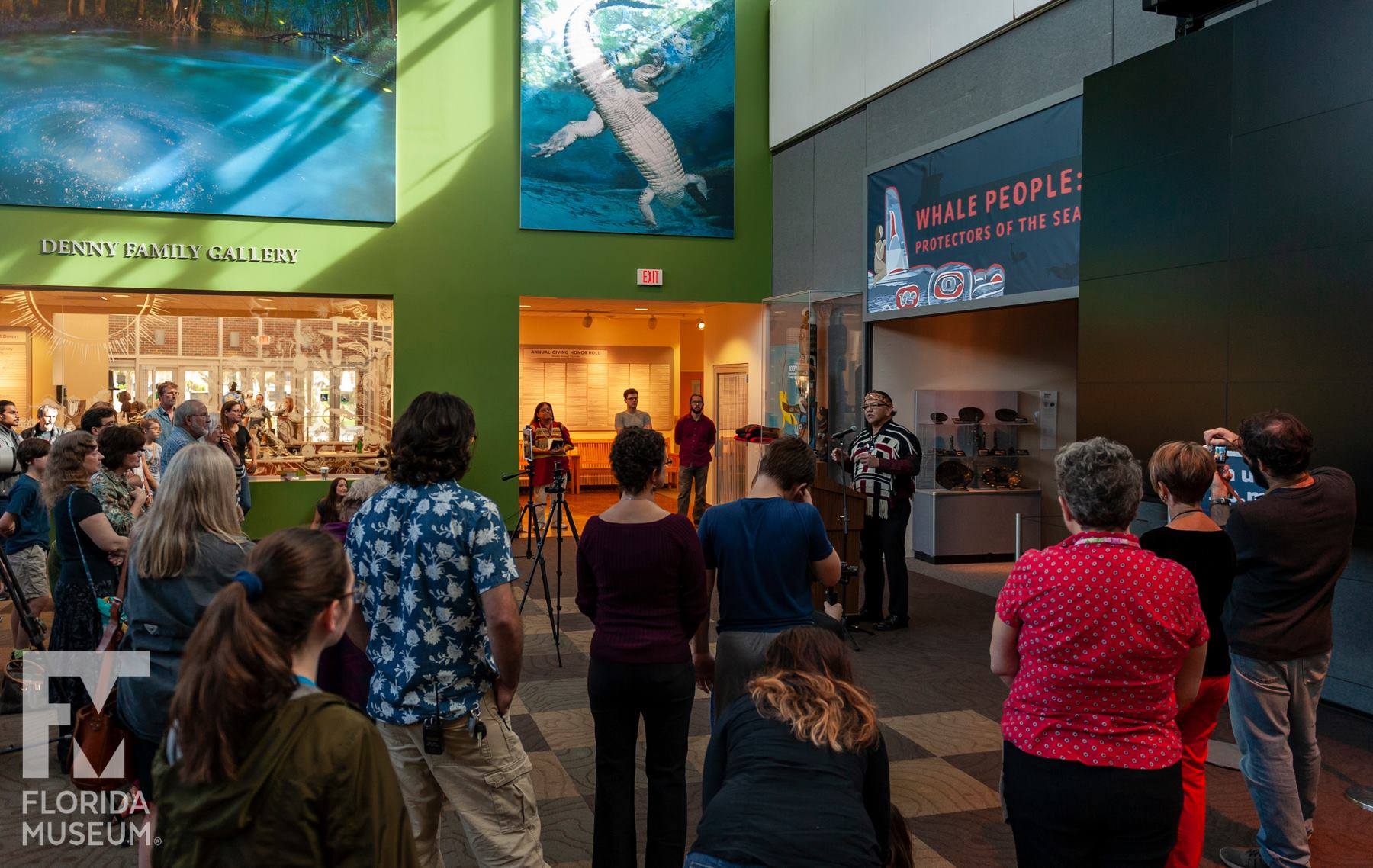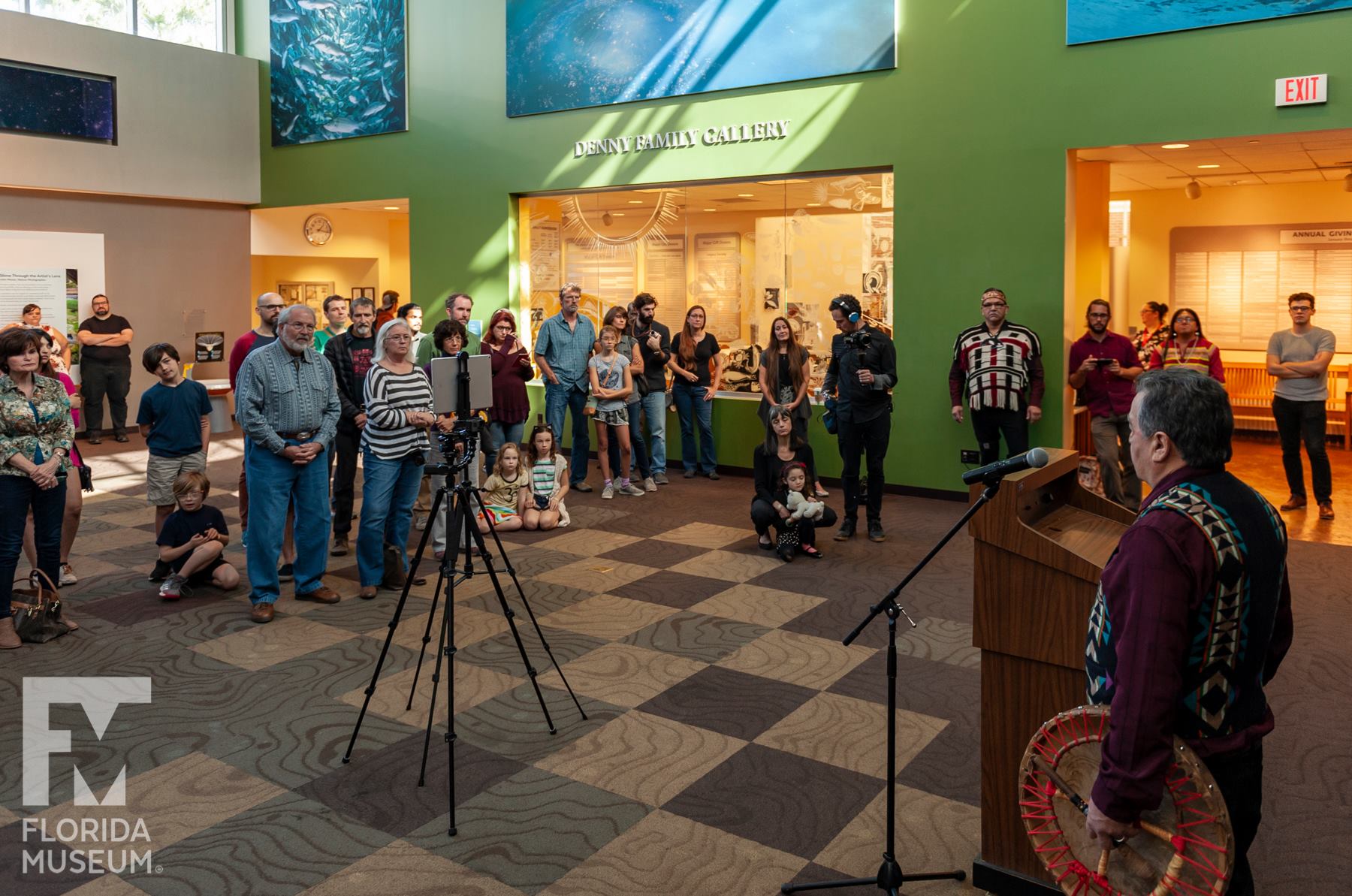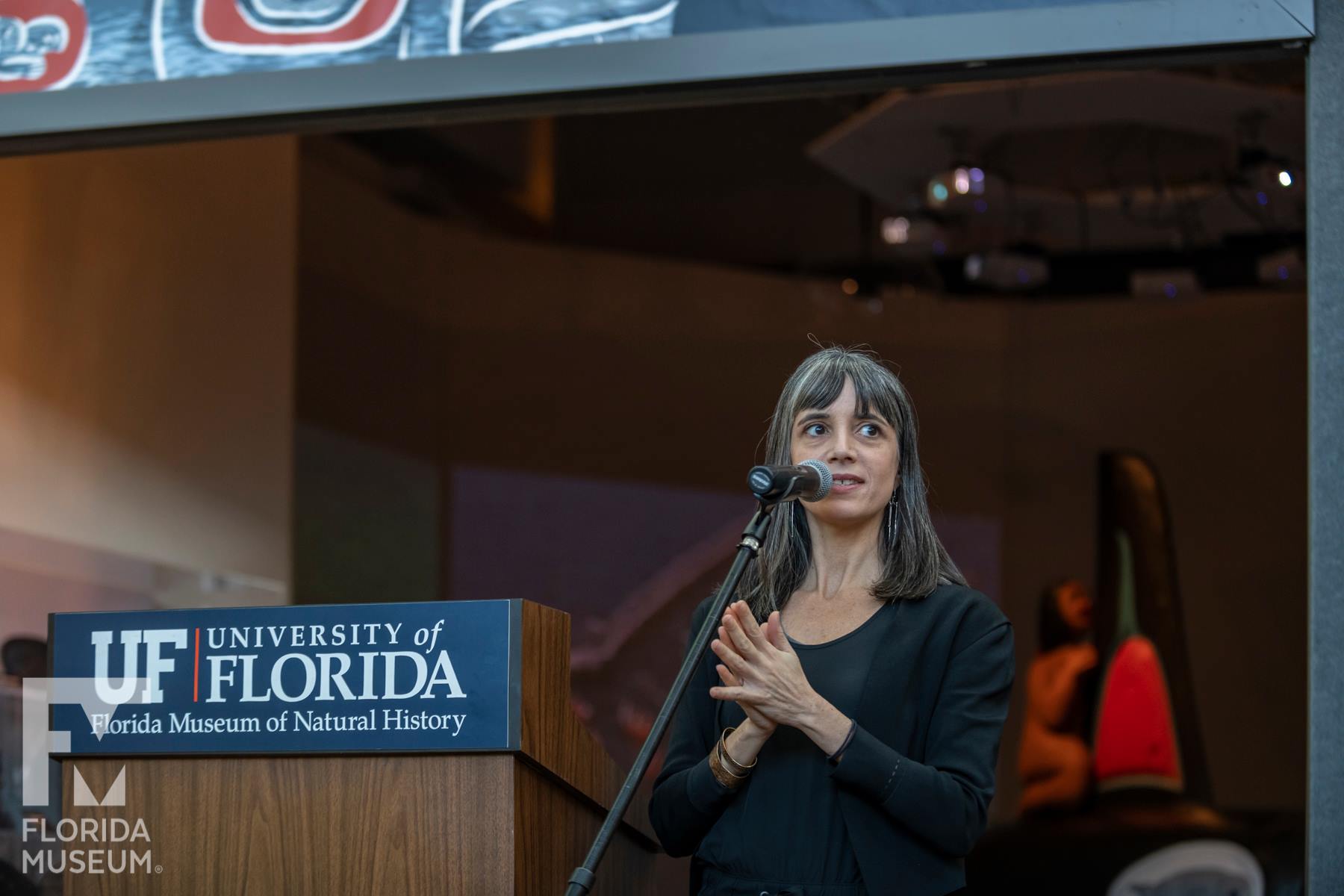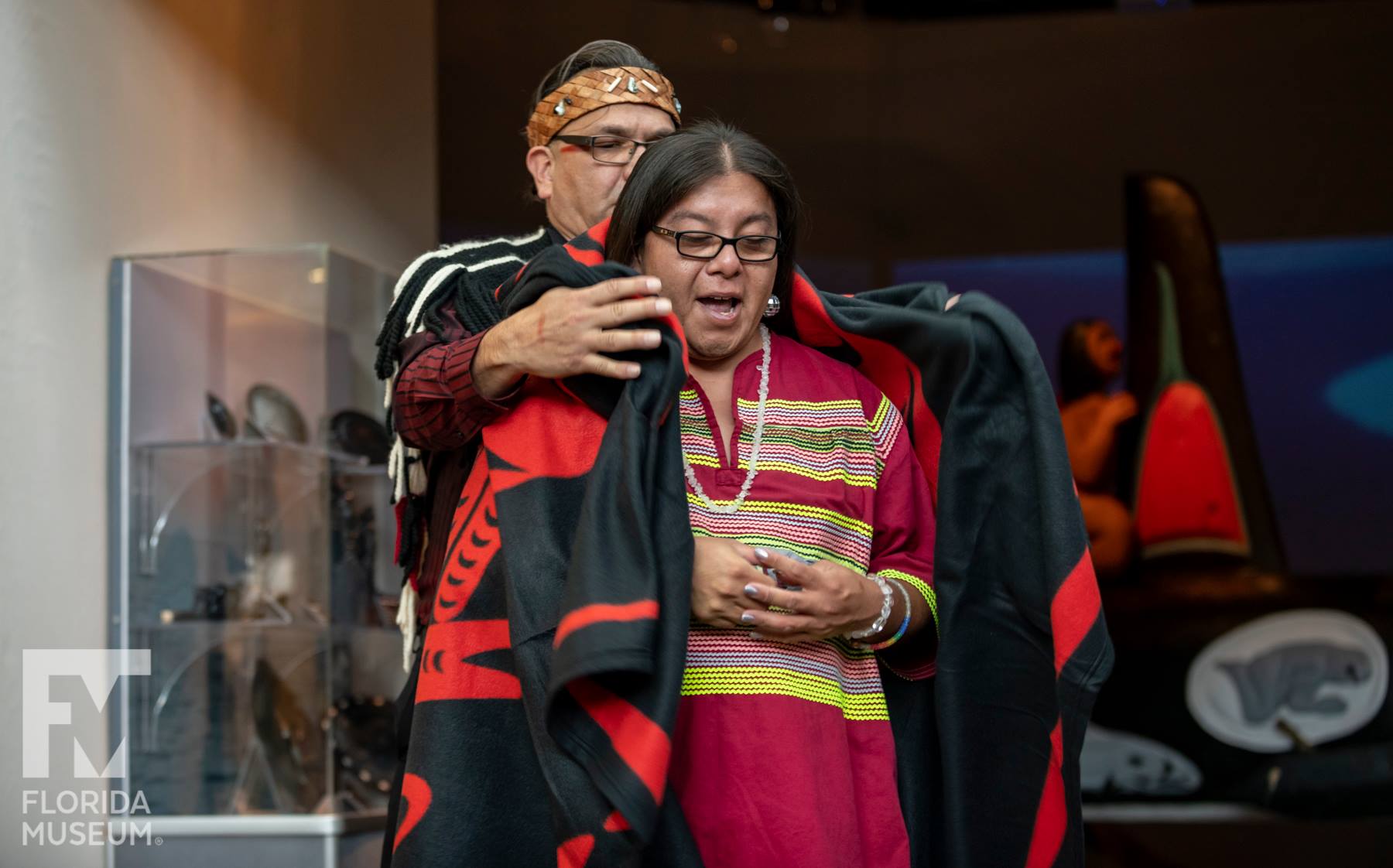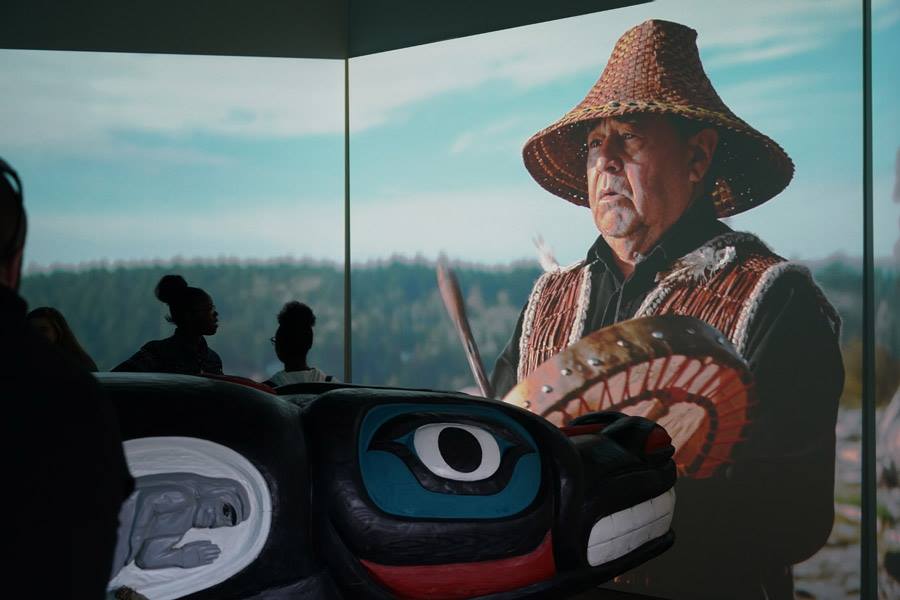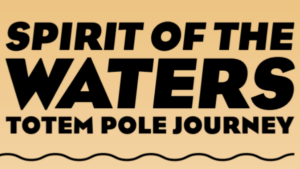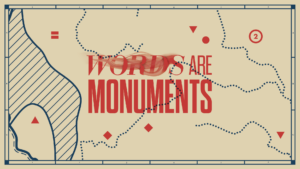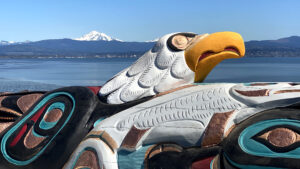Exhibition + Film by Lummi Nation and The Natural History Museum
Update: a mobile version of the exhibition that can be installed indoors or outside will be touring museums and Tribal lands in Washington, Oregon and Idaho through 2020 and 2021, and the film is an official selection at film festivals in the United States, Canada, and France.
The exhibition and film debuted at the Florida Museum of Natural History
Gainesville, FL, December 8, 2018 — May 5, 2019
Killer whales, or orcas, are a “miner’s canary” for the ocean. Their health indicates the health of the seas, the salmon stocks, the ancestral waters and way of life of coastal Indigenous communities, and the well-being of future generations.
The orca is among the most contaminated and critically endangered marine mammals in the world. From the Lummi Nation to the Tsleil-Waututh Nation, Indigenous communities in the Pacific Northwest are sounding the alarm, exposing the many threats orcas face, from outdated dams and depleted salmon stocks they depend on for food, to toxic pollution, sound pollution, and the proposed Trans Mountain Pipeline that would bring 800 new oil tankers annually to the Salish Sea.
The House of Tears Carvers of the Lummi Nation has been traveling with a 3,000 pound carved whale totem to raise awareness about the plight of killer whale–one of the Lummi’s most revered relations. For the Lummi and many other Coast Salish tribes, families are sacred and killer whales are kin. Qw’e lh’ol mechen, the Lummi word for killer whale, translates to “our people that live under the sea”.
Whale People: Protectors of the Sea brings the whale totem into a museum for the first time, where visitors are invited to lay hands on it as thousands of others have on its journey. Alongside the totem is a selection from the Florida museum’s collection of historical northwest coast totem poles depicting the whale. A seven-channel 90-foot-wide immersive floor-to-ceiling video installation features spectacular underwater footage of the orca, and the voices of Indigenous elders communicate a message that was at the heart of the totem’s journey: what we do to the waters we do to ourselves.
This exhibition and short film tells the story of today’s environmental emergency through the figure of the orca. From the Pacific Northwest to the Gulf Coast, fossil fuel pollution and industrial development places at risk our collective natural and cultural heritage. Native communities coast to coast enjoin us all to protect, restore, and pass on to future generations a respect for each other, the sacred waters, and all our relations.
——————————
About the Film
Whale People: Protectors of the Sea is a multi-channel film produced with Lummi and Tsleil-Waututh elders for an eponymous museum exhibition that tells the story of today’s environmental emergency through the figure of the orca. In 2020 it won an award in 3 categories at the Best Shorts Competition (Documentary Short, Native American /Aboriginal Peoples, and Nature /Environment /Wildlife), 2 categories in the Toronto Beaches Film Festival (best environmental film, best editing), Best Ocean Conservation Short Film at the Tulum World Environment Film Festival, and Best Environmental Film at the Global Independent Film Festival. It was an official selection at the 2020 Cannes International Independent Film Festival, International Wildlife Film Festival (IWFF), American Documentary and Animation Film Festival, Toronto Short Film Festival, Woodstock Museum Film Festival, Tacoma Film Festival, and Dreamspeakers International Film Festival, and it’s now part of the IFWW Educator’s Package used by teachers for 3rd grade to university and graduate level programs.
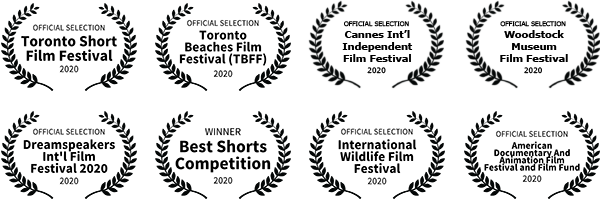
Credits
Exhibition by Lummi Nation and The Natural History Museum
The Lummi People, or Lhaq’temish, are the original inhabitants of Washington’s northernmost coast and southern British Columbia. For thousands of years, the Lummi have worked, struggled and celebrated life on the shores and waters of the Salish Sea.
Established in 2014, The Natural History Museum is a traveling pop-up museum that partners with community groups, artists, educators, scientists, and major public museums on environmental justice-themed exhibitions and programs.
Totem Pole
House of Tears Carvers
Exhibit Design
The Natural History Museum
Interviews and Narration
Tsi’li’xw Bill James, Master Weaver and Lummi Nation Hereditary Chief
Jewell Praying Wolf James, Master Carver, House of Tears Carvers; Officer, Lummi Nation Tribal Sovereignty and Treaty Protection Office
Ta’ah Amy George, Elder, Tsleil-Waututh Nation
Footage
The Natural History Museum
Freddie Lane, Tribal Council Member, Lummi Nation
Devyn Brugge
Florian Graner
Geoff Schaff
Greenpeace
Howie Chong
Julia Kidder
New Energy Media
Protect the Inlet
Sam Rose Phillips
STAND
Zack Embree
Editing
The Natural History Museum
Music
Black Hawk Singers
Doug James
Paul Cheoketen Wagner
Design & Illustration
The Public Society
Josh Yoder

